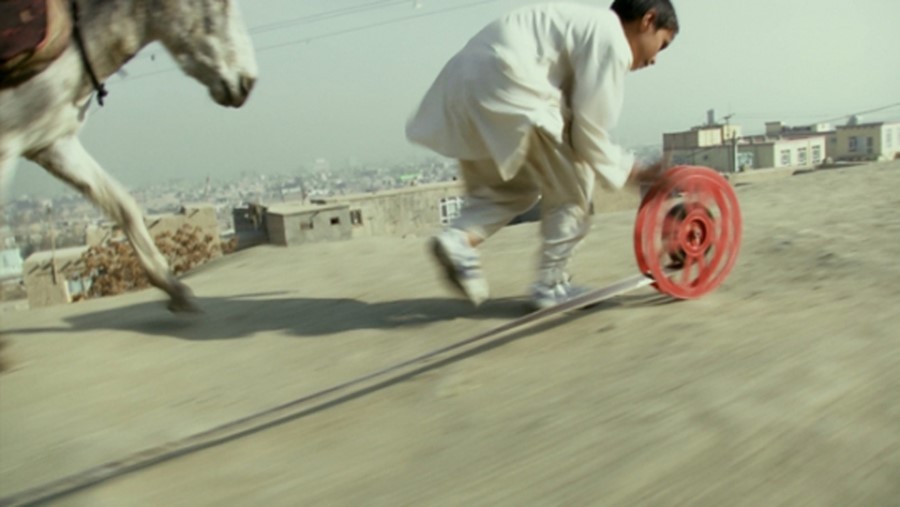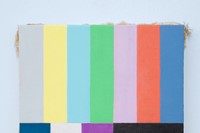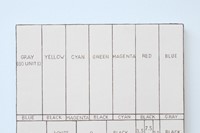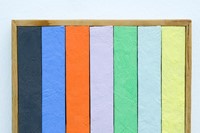German art show dOCUMENTA was founded in 1955, its mission to banish the cultural darkness imposed over the country by Nazism, and to throw down strong new, vibrant artistic roots despite the wasteland created by years of repression...
German art show dOCUMENTA was founded in 1955, its mission to banish the cultural darkness imposed over the country by Nazism, and to throw down strong new, vibrant artistic roots despite the wasteland created by years of repression. For its thirteenth edition, the show expanded its remit beyond its founding city of Kassel to take up position, "physically and conceptually", in, among others, Kabul, Afghanistan, for a series of workshops and exhibitions themed around the cultural implications of war in a hyper-modern context. Among the artists asked to take part was Francis Alÿs, the Belgian painter, filmmaker and performance artist who resides in Mexico City, and who created work for both the German and Afghanistan shows: an exhibit of paintings in a disused Kassel bakery, and a 20 minute film, Reel - Unreel, filmed and screened in Kabul. On his return from the premieres of both shows, AnOther spoke to Alÿs about the influence of geography and heritage on his work, the integral part played by his collaborators, and how he overcomes doubt to produce the best art.
Your backstory is famous: being Belgian and then moving to Mexico, and that move essentially inspiring you to change from being an architect to being an artist. In your latest work, you have been provoked by Afghanistan - how does this geographical mix provoke your work or change the way you look at things?
Can that make any sense – a Belgian artist living in Mexico and working in Afghanistan? In the preliminary discussions with [dOCUMENTA curator] Carolyn Christov-Bakargiev, it was one of the things that was raised. Whether I could be of any relevance in a context like the extremely complex situation of Afghanistan? It is a question I ask myself in any scenario where I don’t know the local culture, I don’t know the local issues, I don’t know the local religious aspect. In these situations you go, you react, you absorb as much as you can. And sometimes you have something to say, sometimes you don’t. It’s a double game; you can always produce something, but that doesn’t mean that it is, firstly, urgent in the context of the place itself, and secondly, coherent with your former narrative as an artist. There are some cases when you can make those two elements coincide: a clash, literally, between the culture and the context that brings the shape or context that was missing, to suddenly unfold the project. Which is kind of what happened in Kabul. I went there thinking about some relation to film, image, representation and one quotidian element to stand out was simply that a popular children’s game in Afghanistan is the art of rolling a wheel with a stick. That was a very literal mode of playing with film - considering the wheel of a bicycle alongside a reel of film, you have the mechanics of an action plus the extremely complex relation to the image. The agreement with Carolyn was that I would go and I pretty much promised to deliver something good. But I really had no idea if anything vaguely relevant could be said. But it turned out okay.
"In these situations you go, you react, you absorb as much as you can"
In an interview in 2000, you said that you had no skills as an artist but your skill was finding the right collaborator in order to create the work that you do. Did this happen on this project too?
Yes, it’s true. It’s very true. It’s a model of finding the right affinity with someone, and starting a conversation with a person that allows you to have access to a whole other universe, and to look at the daily reality of another place. For this project, I was very much helped by an Afghan architect who I met on the first trip: Ajmal Maiwandi. He became the collaborator on the piece and it’s very much based on my discussions with him. Formulating the proposal is about 80% of the actual time of the process. In the end, the time spent filming, editing and postproduction is a very small proportion of the total time you spend in the production of the film. The result is little compared to all that has happened before, but what you can offer to the outsider is the inclusion of as many elements as possible of what you have learnt. But it’s always going to be, first of all, a subjective take on the local situation and secondly, only a fragment of the total experience. My case has been an extraordinary opportunity in a country that I would never have access to in a normal situation. It worked thanks to Ajmal, thanks to communication and the fact that Carolyn let me have pretty much freedom of operation.
It’s interesting, especially with your geographical relocation and all these different places. Does inspiration come when you are jolted out of your norm?
I have many doubts about that. Personally I have questions about how valid as it is to practice in so many different locations – it is a novelty in my profession I think. It is sometimes very difficult to resist the temptation to do these things as it is so often extremely enriching from a personal point of view. You can fail, you can not find an answer, in which case you need to stop it. You can’t cheat and you can’t force it. I think it’s something that is slightly conflicted each time, each time it might not make any sense. I feel I need a second indication each time, something that is definite so that I feel have something to grasp. I have no particular response, but when it happens it is very challenging and that is probably what feeds the drive, the emotion if you like, and forces you to readdress your established ideas.
"Once you get hooked to a place, it’s never easy to leave"
Do you have any idea about what the next project or collaborator will be?
More or less. The other aspect to this kind of project is that once you get hooked to a place, it’s never easy to leave. So I have started looking into quite a lot of projects in Afghanistan in parallel to the main project which I’m still picking over. I know that working there can be dangerous, but if it’s not challenging, it’s not worth doing. I very much like leaving all kinds of possibilities open. You cannot know when you are out of your subject even thought you can’t define what your subject is. In itself, it’s already is a very intuitive narrative thread, and in my own experience, not understanding too well what you’re doing means you’re probably already part of something.



